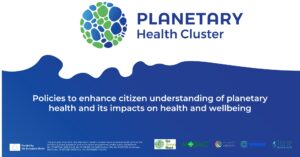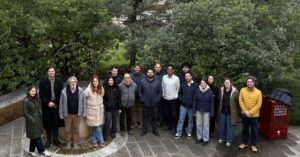Overview of the Case Study 3
Per- and polyfluoroalkyl substances (PFAS) are synthetic organic compounds with interesting chemical properties. Among other uses, they are used in fire fighting foam for their thermal stability, in medical and outdoor products for their lipophilic and hydrophobic properties (“lotus effect”), and in frying pans for both these properties. These desirable properties come to a price: PFAS are very persistent and therefore accumulate in the environment. And contrary to past belief that such inert substances cannot be toxicologically relevant, health effects have been shown. There are restrictions on PFAS use, but they are persistent and accumulate along the food chain.
Public interest in these “forever chemicals” is high, monitoring programs are rising and their impact on human and planetary health is investigated. The goals of this case study are to assess the situation regarding PFAS in the food chain by using openly available datasets that offer enough detail and reproducibility to be interpreted and communicated in both scientific journals and to the public.
Progress and key activities
In a workshop in last autumn, stakeholders identified the information and tools that should be integrated into the papers. They gave special attention to analytical, digital tools to enable governmentally led agencies to answer questions from the public regarding PFAS and monitoring efforts.
Insights and upcoming actions
A next step is to analyse, interpret and publish the existing datasets and to communicate the results in the Planet4HEALTH environment. This process, supported by the experts from the agencies, aims at creating a targeted strategy which will make sure that the information needed and the methods used are suitable for the omnipresent PFAS.
Tackling Challenges through planetary health approach
Due to the globalization in studying and monitoring environmental contamination, it is important to develop dynamic data and materials that show the risks from contaminated food. Raising awareness and sharing information about these risks is essential to help people trust in food safety authorities and their work. By improving data analysis and publication, we can better manage the largely unknown health risks from PFAS, lower the chance of sudden food scandals, and safeguard the health of all of us on the planet.
The Austrian agency for health and food safety (AGES) as well as Germany’s Federal Institute for Risk Assessment (BfR) have joined the Planet4HEALTH project to jointly manage Case Study 3. The team is working together transnationally to further enhance food safety and ultimately planetary health.
Authors: BfR and AGES team



